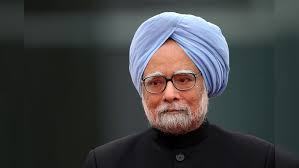Budget 2025-26: Key Highlights and Its Impact on Personal Finance

Direct Tax Reforms: More Money in Your Hands
The Union Budget 2025-26 introduces significant income tax reforms aimed at enhancing personal finance by providing considerable relief, especially to the middle class. With the revised personal income tax slabs, individuals earning between ₹8 lakh and ₹16 lakh annually will now enjoy reduced tax rates. This change translates to more disposable income, allowing households to save more, invest in their future, or improve their quality of life. As a professional blogger, I often receive questions about how to effectively utilize this extra cash flow. Consider building an emergency fund, contributing to retirement savings, or even investing in mutual funds to maximize the benefits of these reforms.
Additionally, the budget has heightened its focus on senior citizens by doubling the tax deduction limit from ₹50,000 to ₹1 lakh. This move offers better financial security, acknowledging the rising cost of living and healthcare. The increase in the TDS threshold on rent from ₹2.4 lakh to ₹6 lakh is another commendable step, simplifying financial transactions for tenants and landlords alike. These measures are designed not only to enhance individual wealth but also to stimulate overall economic growth, aligning with the government's vision of a prosperous society.
Boosting MSMEs and Entrepreneurship
The Budget 2025-26 recognizes the pivotal role that Micro, Small, and Medium Enterprises (MSMEs) play in driving economic growth and fostering innovation. This year's budget provides a much-needed boost to MSMEs by improving financial access and support systems. For instance, the introduction of customized credit cards for micro-enterprises, with a limit of ₹5 lakh, is a game-changer for small business owners. This initiative will ease the credit crunch and empower entrepreneurs to scale their businesses, contributing to substantial MSME growth.
Moreover, startups receive a significant advantage with an extended incorporation period of five years, offering them a longer runway to establish themselves and benefit from tax breaks. The budget also emphasizes export promotion for MSMEs by setting sectoral and ministerial targets to facilitate easier access to export credit. This focus on MSMEs and entrepreneurship not only boosts the digital economy but also enhances financial inclusion, ensuring that small businesses have the resources and opportunities to thrive both domestically and internationally.
Investment and Capital Market Reforms
In the realm of investment, the Union Budget 2025-26 sets the stage for a more dynamic and competitive market environment. A major highlight is the increase in the Foreign Direct Investment (FDI) limit in the insurance sector from 74% to 100%. This decision is likely to attract global investors, which could lead to enhanced competition, better services, and potentially lower insurance premiums for policyholders. It's an intriguing time for investors who are keen to explore opportunities within the insurance sector as it evolves.
Additionally, the introduction of partial credit enhancement for corporate bonds is poised to encourage more corporate investments in infrastructure projects. This move is expected to catalyze job creation and spur economic expansion, presenting investors with fresh avenues for growth. As someone who writes extensively about financial inclusion, it's inspiring to see such reforms that not only aim to stabilize markets but also promote a thriving investment climate, ultimately impacting personal finance strategies positively.
Social Security and Welfare Enhancements
This year's budget underscores the government's commitment to enhancing social security and welfare, aiming for a more inclusive society. The expansion of the PM SVANidhi Scheme is a significant step towards financial inclusion, providing street vendors with access to enhanced loans and UPI-linked credit cards. This initiative empowers grassroots entrepreneurs, allowing them to grow their businesses and improve their livelihoods.
Furthermore, the welfare measures for gig economy workers, such as delivery agents and freelancers, are a noteworthy advancement. By including them under the PM Jan Arogya Yojana for healthcare benefits, the budget acknowledges the vital role they play in the digital economy. Employment-focused schemes for labor-intensive sectors like footwear, leather, and food processing are designed to generate millions of jobs, thus improving household income levels. These enhancements present an optimistic outlook for individuals and families, reinforcing the budget's focus on personal finance and socio-economic betterment.
Real Estate and Infrastructure Growth
The Budget 2025-26 places a strong emphasis on real estate and infrastructure growth, recognizing the sector's potential to drive economic development. A notable initiative is the allocation of a ₹15,000 crore fund under the SWAMIH Fund-2, aimed at completing stalled housing projects. This fund will not only ensure that homebuyers receive their properties on time but also provide a significant boost to the real estate market, making it an attractive sector for investors.
Moreover, investments in regional connectivity through the development of greenfield airports and the UDAN scheme promise to transform emerging cities, enhancing travel convenience and unlocking new real estate opportunities. As a professional blogger, I've seen firsthand how such infrastructure developments can revitalize local economies and improve residents' quality of life. These initiatives align with the budget's broader goals of fostering economic growth and improving living standards, making it a significant step forward for personal finance and investment strategies.

How Manmohan Singh Reformed India’s Economy: A Journey of Transformation

Why Tax Planning Matters More Than Just Filing Your Taxes
